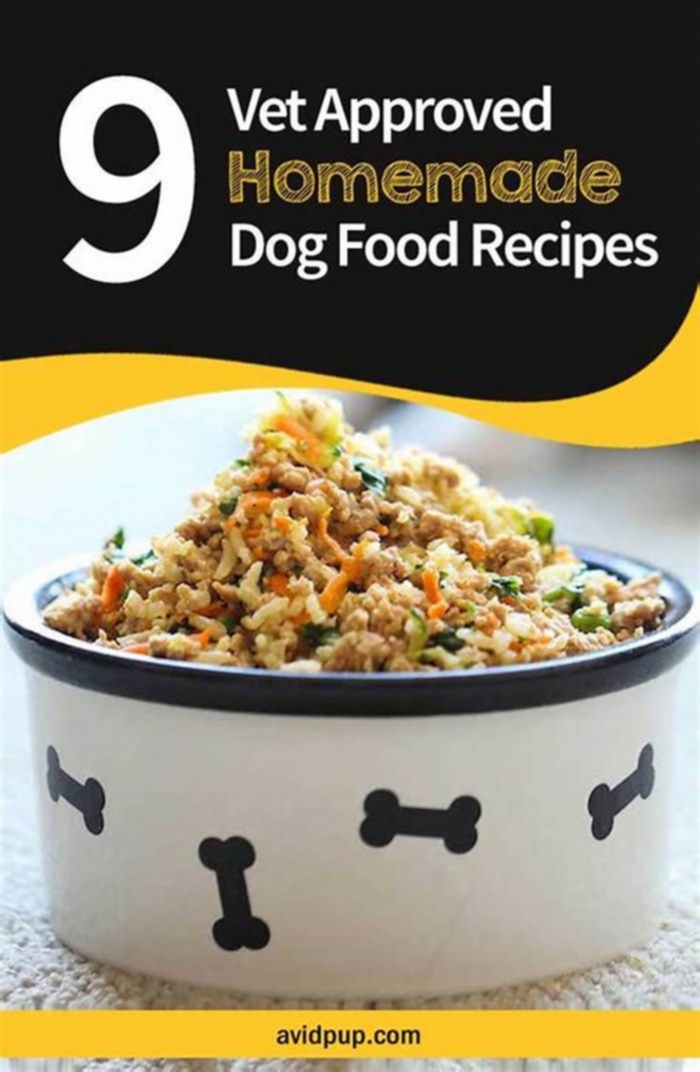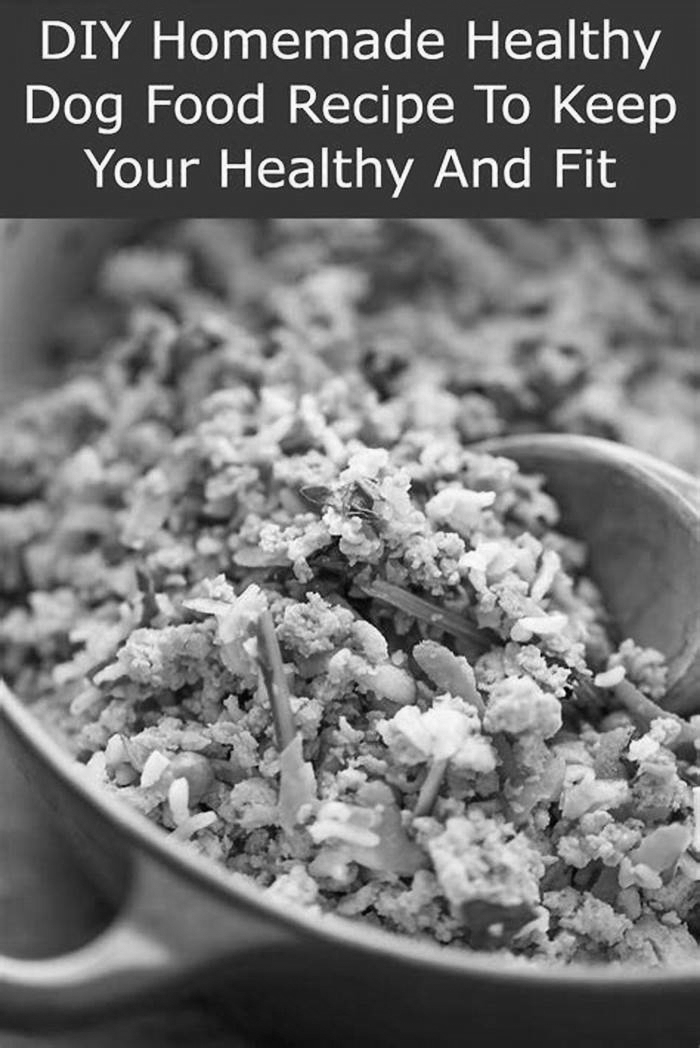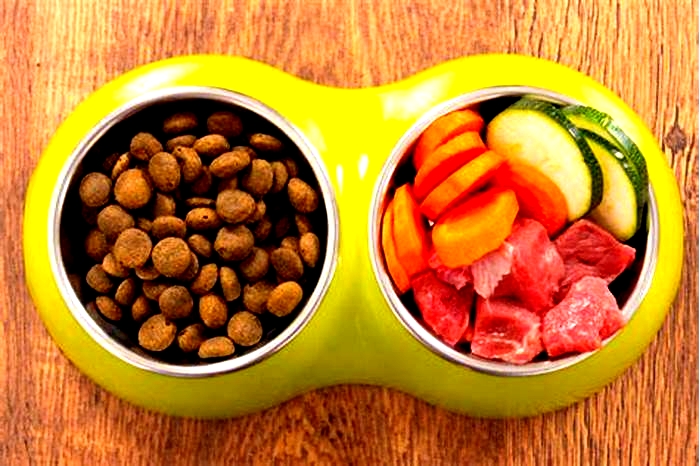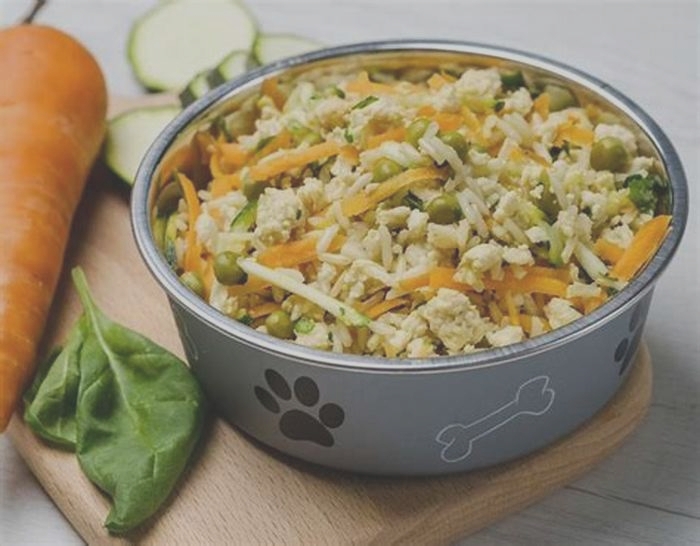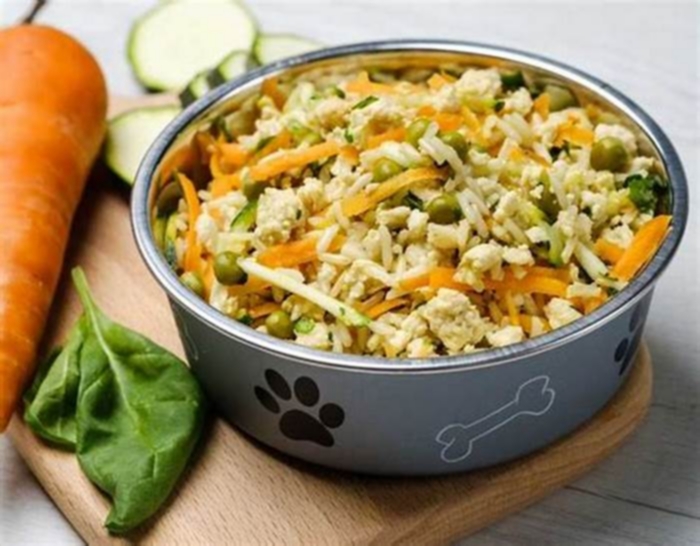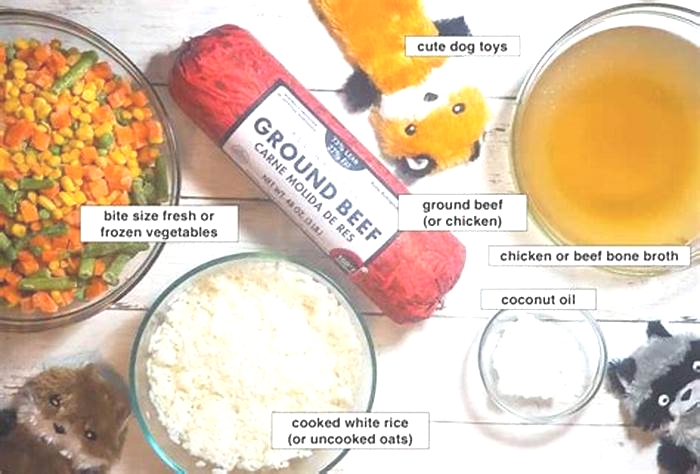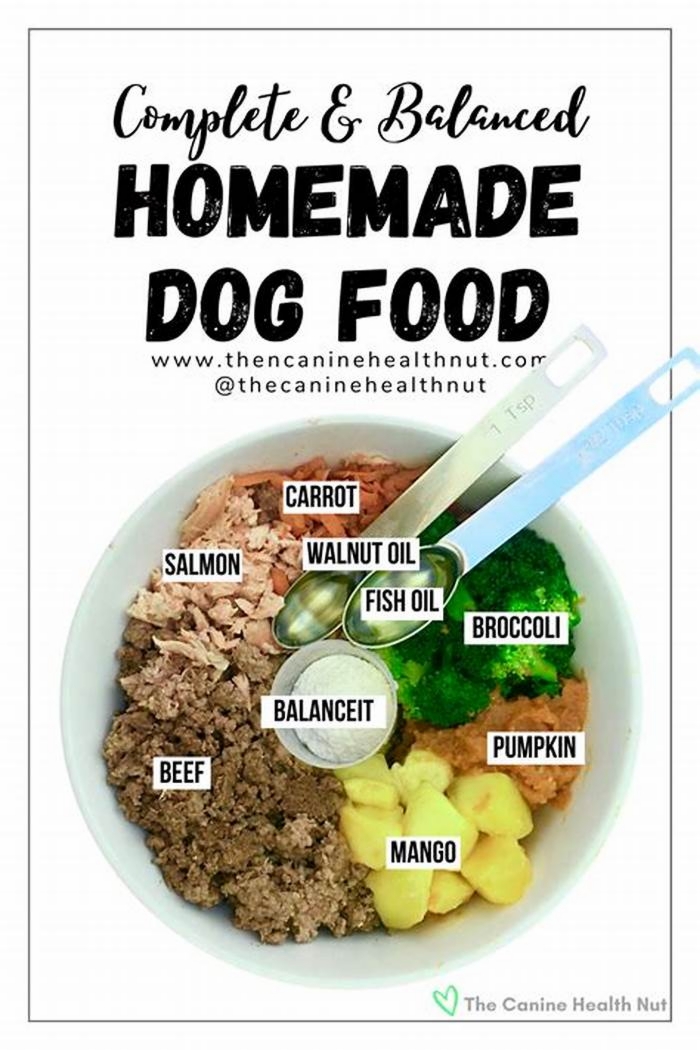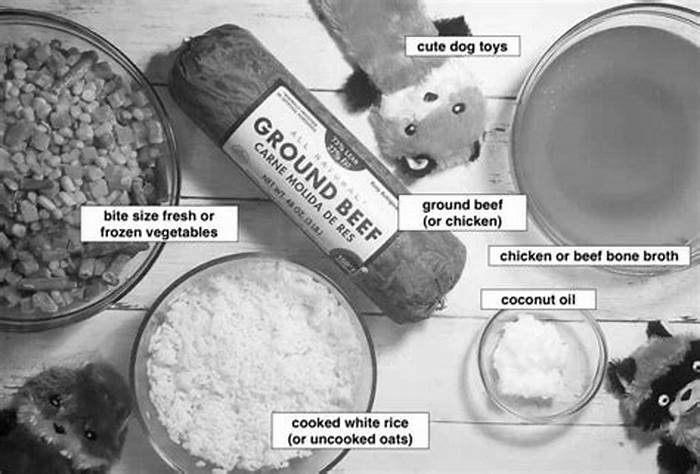Why are vets against homemade dog food
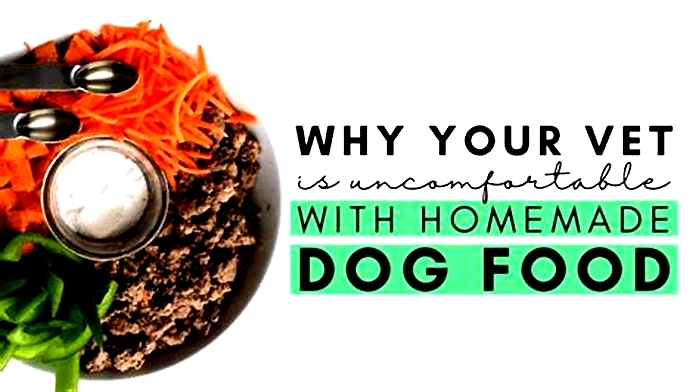
Why are vets uncomfortable with Homemade Dog Food?
Im sure you have either read or experienced the dreaded veterinary visit when your vet asks you what you feed your dog, and you say I feed a homemade fresh food diet. and the veterinary team immediately freezes. All other ideas or conversations stop, and they move to try to convince you that you definitely should not be doing that. Ive seen so many facebook posts about this in forums and some of the responses have scared me I just tell them I feed kibble PLEASE do not hide that you are home-preparing your dogs food
As both a veterinary professional and a home cooker of over five years I feel that in situations like this its VERY important, to be honest, and communicate effectively with our veterinary team so that our dogs can receive the best care possible. In order to do this, we need to both understand why our veterinarians are wary of homemade dog food, and then as a fresh feeder, we need to be able to address those concerns during the beginning of the appointment. We also need to be able to effectively explain our why to our veterinary team so they can understand and empathize with our decision to feed fresh food to our dogs.
Most Homemade Diets Are NOT Complete & Balanced
The first thing you need to understand is that research regarding homemade dog food being complete and balanced isnt great meaning that when board-certified veterinary nutritionist went out and did an analysis of homemade recipes they found that over 95% of homemade recipes found online and in books were not complete and balanced, and were deficient in at least one essential nutrient for dogs. They also found that over 80% of those recipes had MULTIPLE deficiencies. (Pedrinelli 2017)
So when you speak to your veterinarian in the clinic they know that there is a low chance that the homemade recipe that you are feeding your pup is actually complete and balanced to both AAFCO and NRC standards. And they expect that you will need a lot of additional help and guidance in order to make the diet balanced.
Dog Owners Do Not Tend to Stick to a Recipe
On top of that further studies have followed dog owners who DID receive complete and balanced recipes from a board-certified veterinary nutritionist. This study showed that within 6 months 73% of the owners omitted the recommended oil within the recipe, 40% of owners did not measure ingredients, and 30% modified the diets to include different ingredients (Oliveira 2014). By just switching out the oil in a recipe from something like corn oil to coconut or olive oil an owner might unknowingly not actually be providing their dogs all the essential fatty acids that they need. And switching ingredients out could result in nutritional imbalances, or even simply caloric deficits depending on the substitution if not adjusted properly in other areas of the diet.
So knowing that most recipes are both unbalanced and most owners do not follow a recipe even if provided you can see why your veterinarian might be skeptical of you if you are doing a homemade diet for your dog.
Drawbacks of Homemade Diets and Further Concerns
It is also important to realize that there are also drawbacks of DIY dog food, and these fall into two main categories: testing and quality control. I know many people look to go towards DIY dog food in order to avoid dog food recalls or because they have been affected by dog food recalls in the past. I definitely understand that since you can control who you source your ingredients from and the quality of those ingredients.
Pathogens in Homemade Dog Food
However, when I talk about quality control what I mean is that you do not perform any quality testing on your homemade dog food for things like heavy metals, mycotoxins, listeria, or salmonella. Human goods do have issues with pathogen contamination as well 25% of raw chicken on the market will be contaminated with Salmonella, and raw vegetables like Spinach and Lettuce have frequent recalls for pathogens like E.Coli.
A good dog food manufacturer will do post and pre-manufacturing testing on their products and ingredients for pathogens and the price of these tests will be included in the price of the diet. Financially testing each batch of homemade dog food for pathogens is usually not possible, and I honestly have never met someone who does so.
Nutrient Adequacy in Home Prepared Dog Food
Another aspect of testing that we need to discuss is nutrient adequacy. Even if we use a diet that is formulated to AAFCO, NRC and FEDIEF nutrient standards for dogs does not mean the diet we create is adequate (Pedrinelli 2019). What do I mean by this? Well, most people understand that depending on where you source your meat and produce, what they are fed, what the soil is like, and what the environment is like where the animals or produce is grown will affect the overall nutrient composition of the food.
So naturally, there will be some variation in foods used for dog food, this doesnt change when we home-cook for our dogs. In large manufactured dog food companies they will do full nutrient testing on the final product and ingredients included in their dog foods, but due to financial reasons those of us that home prepare do not batch test for nutrient adequacy. We also do not do studies such as feeding or in-depth digestibility trials on our homemade diets.
Vets often lack Time for a Full Homemade Diet Consult
Couple the fact that most diets are unbalanced and most owners change/modify recipes with the fact that veterinarians typically have literally 30 to 45 minutes to cover EVERYTHING when it comes to your pets health dental health, general wellness, illness, preventative care, surgery, etc you can see how nutrition might not get enough time to really be spoken about. Especially if a pet is ill and the veterinarian needs to have a long discussion about the disease process and how it will affect the pet going forward.
Recommending a pre-made diet rather than evaluating the current diet, communicating/asking questions about possible modifications, explaining recommended modifications, using a software to create a custom diet to fit the dog and owners preferences There just isnt enough time in one appointment for all of those things.
Its not your Veterinarians Specialty
Although veterinarians do receive education on animal nutrition while in school, they may not have taken additional continuing education or electives on diet formulation. REMEMBER the veterinary field is vast some general practitioners may be more interested in something like minimally invasive surgical procedures or infectious diseases than about nutrition and diet formulation. Its the same way with our own human doctors its hard to know everything to the extent of being an expert in it, and thats OKAY. So though your veterinarian might be able to glance at a recipe and know its unbalanced, they might not know exactly what or how much of certain vitamins or minerals your dog would need to make a recipe balanced again.
These reasons coupled together is why your veterinarian may seem uncomfortable with you feeding a homemade and may ultimately refer you either to another practice, someone who does diet formulation for dogs, or even a board-certified veterinary nutritionist in order for your dogs diet to be evaluated fully for nutritional adequacy.
Addressing your Vets Concerns about Homemade Diets
Knowing that veterinarians have legitimate concerns about homemade diets what we can do as a dog owners who feed fresh food is address these concerns by both doing our research and providing our veterinarian with resources.
The first thing you can do is bring a copy of the recipe along with the detailed breakdown of the calculated nutrient analysis of the recipe give your veterinarian proof that the diet is complete and balanced. If you have already worked with a nutritionist, diet formulator, or have used a software like balanceIT bring the full printout to your veterinary visit. Often these documents will be scanned in or copied and saved to your pets medical record for reference later if needed. Remember your veterinarian has your pets best interest in mind when mentioning concerns with homemade diets, they dont want your pet on an unbalanced diet that might CAUSE disease or illness in your pet which an unbalanced diet definitely can do.
The second thing you can do is describe your meal-prepping process to your veterinarian, explain how you weigh and prepare your ingredients so ensure consistency over time. This will help your veterinarian feel comfortable with the fact that you are following a recipe.
The third thing you can do to help your veterinarian understand your choice to feed your dog fresh food is tell your why. No fresh feeder or home-cooker puts in all that work, time, and effort to do so without a reason tell your veterinarian what that is.
Was your dog suffering from horribly itchy skin prior to switching to homemade dog food? Did they have loose stools and gastrointestinal problems? Did your dog refuse to eat other dog foods for health reasons or personal preferences? Have you read research showing possible benefits of fresh food for digestibility, and microbiome? Probably one of the biggest positives of a homemade diet for dogs is the ability to customize the diet composition and ingredients to suit your dogs individual nutritional needs and if you have a dog with multiple medical conditions that has lead you towards a homemade diet for your dog, explain this to your veterinarian.
No one decides overnight to feed their dog a fresh food diet, often people have thought about it for a while prior to taking the plunge into homemade dog food.
Conversations about DIY Dog Food with Your Vet
Looking for more tips? Make sure to check out my podcast interview with WAG OUT LOUD Pawcast below.
The big thing I really want you to take away from this is that you should not omit or lie to your veterinarian for whatever reason. If after you explain the lengths you have gone to make sure your dogs diet is balanced you do not feel comfortable or understood by your current veterinarian please seek another vet or specialist to help you. Good options to speak about homemade dog food with are a board-certified veterinary nutritionist, another option is an integrative or holistic veterinarian.
If neither of these types of vets are near you then thats okay! Many will do remote diet consultations! And remember just like you may see multiple doctors throughout your lifetime depending on the diseases or stages of your life your dog may have or seen multiple veterinarians as well! I know personally, I like having a team of veterinarians of different backgrounds to help me with my pups.

RESOURCES
Kritikos G, Parr JM, Verbrugghe A. The Role of Thiamine and Effects of Deficiency in Dogs and Cats. Vet Sci. 2017;4(4):59. Published 2017 Nov 24. doi:10.3390/vetsci4040059
Oliveira MC, Brunetto MA, da Silva FL, et al. Evaluation of the owners perception in the use of homemade diets for the nutritional management of dogs. J Nutr Sci. 2014;3:e23. Published 2014 Sep 25. doi:10.1017/jns.2014.24
Pedrinelli V, Gomes MOS, Carciofi AC. Analysis of recipes of home-prepared diets for dogs and cats published in Portuguese. J Nutr Sci. 2017;6:e33. Published 2017 Jul 3. doi:10.1017/jns.2017.31
Pedrinelli V, Zafalon RVA, Rodrigues RBA, et al. Concentrations of macronutrients, minerals and heavy metals in home-prepared diets for adult dogs and cats. Sci Rep. 2019;9(1):13058. Published 2019 Sep 10. doi:10.1038/s41598-019-49087-z
About the Author: Nikki is a Registered Veterinary Technician (Veterinary Nurse) and Dog Mom with over a decade of experience with dogs and cats. Since graduation from college (BS Biology, Dip. Animal Nutrition, AS Animal Science) she has adopted two mixed breed dogs Ranger and Ash, and has focused her time learning about pet food and nutrition.
Nikki shares information on a range of pet nutrition topics: from how to create a homemade complete and balanced dog and cat food recipes, to how to choose a pet food. Nikki strives to give dog and cat parents the information they need in order to make the best nutrition decisions for their pet!
You should receive your Free Dog Food Recipe Ebook within 24 hours of subscribing! Make sure to check your spam folder. The recipe ebook is over 90 pages long so make sure you have a good internet connection when you go to download it. Afterwards you will receive weekly Canine Nutrition Updates every Tuesday on different topics related to canine nutrition & homemade dog food!
CONTACT ME:


